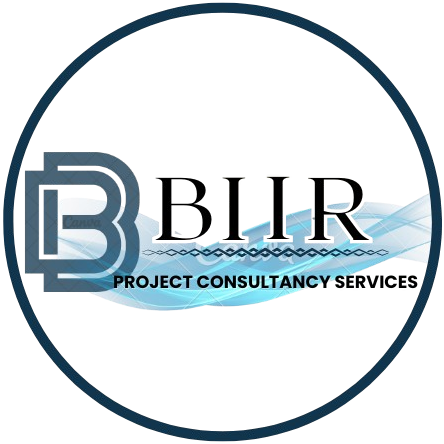Common Project Pitfalls and How to Avoid Them#ProjectReports #ManufacturingIdeas #BusinessStartup #IndustrialProjects #FeasibilityReports #MarketResearch #BusinessConsultancy #TechnoEconomicReports #ProjectFeasibility #StartupIdeas #BusinessPlanning #InvestmentOpportunities #IndustrialManufacturing #Entrepreneurship #SmallBusiness #MarketAnalysis #BusinessGrowth #InvestmentPlanning #ManufacturingSector #BusinessIdeas #IndustrialConsulting #StartupSupport #BusinessDevelopment #ProjectConsultancy #MarketOpportunities #BusinessStrategy #IndustrialDevelopment #BusinessInnovation #EconomicFeasibility #BusinessReports
Managing a project successfully requires careful planning, execution, and monitoring. However, even the most well-planned projects can encounter pitfalls that derail progress and lead to failure. For new entrepreneurs, understanding these common pitfalls and knowing how to avoid them is crucial for ensuring project success. At BIIR Projects, we help startups identify potential challenges early on and provide strategies to overcome them, ensuring that your projects stay on track and deliver the desired outcomes.
Common Project Pitfalls
- Unclear Objectives and Scope: One of the most common pitfalls is starting a project without clearly defined objectives and scope. This can lead to confusion, scope creep, and misaligned expectations among stakeholders.
- Inadequate Planning: Failing to plan properly can result in missed deadlines, budget overruns, and resource shortages. A lack of detailed planning often leads to reactive decision-making, which can compromise the project’s success.
- Poor Communication: Communication breakdowns can cause misunderstandings, delays, and conflicts within the project team. Without effective communication channels, team members may not have the information they need to complete their tasks.
- Inadequate Resource Allocation: Mismanaging resources, such as personnel, equipment, or finances, can lead to bottlenecks and inefficiencies. Overloading team members or underestimating the resources needed can cause project delays and quality issues.
- Lack of Stakeholder Engagement: Ignoring or underestimating the importance of stakeholder engagement can result in a lack of support for the project. Stakeholders who feel excluded or uninformed may resist project decisions or withdraw their support.
- Risk Mismanagement: Failing to identify and mitigate risks can lead to unexpected challenges that derail the project. Without a robust risk management plan, projects are more vulnerable to disruptions.
- Inflexibility: Being too rigid in project management can prevent you from adapting to changes in the project environment. A lack of flexibility can lead to missed opportunities or exacerbate challenges.
- Inadequate Monitoring and Control: Without regular monitoring, project managers may miss early warning signs of issues that could escalate into major problems. Inadequate control mechanisms can result in deviations from the project plan.
Strategies to Avoid Common Pitfalls
- Define Clear Objectives and Scope: Start by clearly defining the project’s objectives, deliverables, and scope. Ensure that all stakeholders agree on these elements and understand their roles in achieving them.
- Develop a Detailed Project Plan: Invest time in developing a comprehensive project plan that outlines tasks, timelines, resources, and budgets. Include contingency plans for potential risks and regularly update the plan as the project progresses.
- Establish Effective Communication Channels: Create clear communication channels and protocols for sharing information among team members and stakeholders. Regular meetings, status reports, and collaboration tools can help maintain transparency and alignment.
- Allocate Resources Wisely: Assess the resource needs of your project and allocate them accordingly. Ensure that team members are not overburdened and that you have the necessary equipment, materials, and finances to complete the project.
- Engage Stakeholders Early and Often: Involve stakeholders in the project from the beginning and keep them informed throughout. Regular updates, feedback sessions, and stakeholder meetings can help maintain their support and address any concerns.
- Implement a Risk Management Plan: Identify potential risks at the start of the project and develop mitigation strategies. Regularly review and update the risk management plan as the project progresses.
- Be Flexible and Adaptable: Build flexibility into your project management approach. Be open to adjusting the project plan as needed to accommodate changes in the environment, resources, or stakeholder needs.
- Monitor Progress and Control Variances: Regularly monitor the project’s progress against key performance indicators (KPIs). Implement control mechanisms to address any variances from the plan and keep the project on track.
How BIIR Projects Can Help
At BIIR Projects, we help startups avoid common project pitfalls by providing expert guidance and support throughout the project lifecycle. Our consultants work with you to develop clear objectives, detailed plans, and effective communication strategies. We also assist with resource allocation, stakeholder engagement, risk management, and project monitoring. By partnering with BIIR Projects, you can minimize the risk of project failure and ensure that your projects deliver the desired results, on time and within budget.

